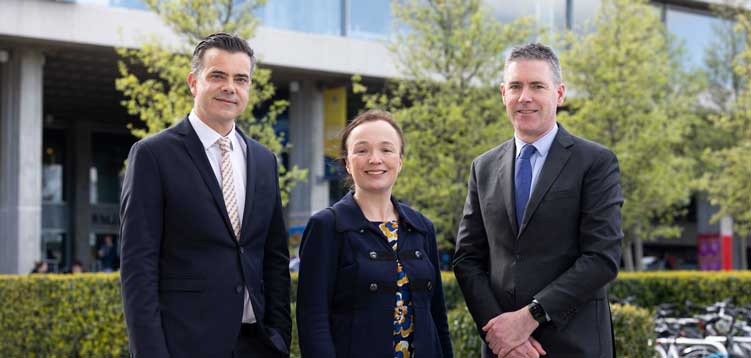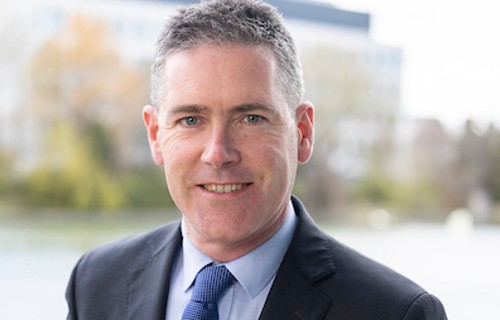Unprecedented success for UCD in ERC Advanced Grant 2021 competition
News and Events
- MacElroy Energy Bursary 2024
- Annual SCBE Seminar Day 2024
- SCBE Student wins Naughton Fellowship
- SCBE EDI Newsletter - Inclusion
- NUI Honorary Conferring of Mohamad Al-Rubeai
- MacElroy Energy Research Bursary 2022
- SCBE EDI Newsletter - Diversity
- SCBE Seminar Day
- Prof Niall English receives ERC Advanced Grant to optimise nanobubble technology for diverse end applications
- SCBE Christmas Party
- Best oral presentation at the special edition of Euromembrane2022
- SCBE EDI Newsletter - Equality
- Unprecedented success for UCD in ERC Advanced Grant 2021 competition
- SCBE EDI Newsletter - Unconscious Bias
- UCD Engineers Among NovaUCD’s 2022 Innovation Awardees
- The first annual SCBE Seminar Day
- Serendipity Swings Doors of Opportunity Open Wide for Nanobubble Generator Developers
- Gas Hydrates – a Potential New Fuel Source or a Cause of Mass Extinctions
- Springer publishes book to mark retirement of Emeritus Professor Mohamed Al-Rubeai
- 2020 News Archive
- 2019 News Archive
- 2018 News Archive
- 2017 News Archive
- 2016 News Archive
Unprecedented success for UCD in ERC Advanced Grant 2021 competition
Tuesday, 26 April, 2022

The European Research Council (ERC) has announced the recipients of its 2021 Advanced Grants competition. The funding worth €624million will go to 253 leading researchers across Europe. Their work is set to provide new insights into many subjects.
Commenting on the awards, UCD Vice-President for Research, Innovation and Impact Professor Orla Feely said: “We are immensely proud of the outstanding success of UCD’s research leaders in this round of ERC Advanced Grant awards. These prestigious grants are a mark of excellence, awarded for groundbreaking research with far-reaching impact, to established academics who are leaders in their field.
“Congratulations to the Advanced Grant recipients Professor Joanna Bruck, Professor Eoin Casey and Professor Robert Gerwarth, and to those who worked with them to deliver this success. Their research will contribute valuable new knowledge and perspectives within their fields and deliver real benefits to the global community.”
Professor Eoin Casey, Head of UCD School of Chemical and Bioprocess Engineering, was awarded €2.5million for ‘Analysis of Biofilm Solid Interactions Underpinning Wastewater Treatment.’ Learn more >
 ‘Analysis of Biofilm Solid Interactions Underpinning Wastewater Treatment,’ Professor Eoin Casey
‘Analysis of Biofilm Solid Interactions Underpinning Wastewater Treatment,’ Professor Eoin Casey
Wastewater treatment (WWT) processes that use biofilms as their biocatalyst have been in use for over 100 years. Over the past few decades, a greater understanding has emerged on how biofilms can be exploited for enhanced nutrient removal and this knowledge has been translated into new technologies representing about one-third of all WWT processes in a multibillion-euro global wastewater technology market.
Despite the success of these technologies, there is significant need for enhanced efficiencies in these processes and the development of new technologies that are more energy efficient and are capable of better resource recovery from wastewater are needed. To achieve this, there is need for new mechanistic insight, in particular the interaction between biofilms and particulate organic matter in the influent wastewater.
The knowledge-gap spans three key areas: (i) non-oxidative interactions, (ii) hydrolysis and (iii) bioflocculation. Professor Casey’s research project will develop an enhanced multispecies biofilm model that better incorporates new understating of these areas. It will go significantly beyond current state of the art by first building an experimental platform that exploits recent developments in advanced imaging, nanosensors and particle-tracking to probe the fundamentals of these mechanisms. To achieve this, the platform will be uniquely based on fluorescently tagged monospecies biofilms, rather than on conventional multispecies biofilm in a first phase of the project. This work will then inform the development of new mathematical model relationships, which will be implemented in an extended multispecies model and validated against data from a pilot plant operating with conditions representative of a real WWT plant.
The transformative approach in this project will lead to a more fundamental insight into the mechanisms underpinning particle-biofilm interactions and pave the way to new application of biofilms for advanced wastewater treatment.
Professor Casey said: “I am delighted to be awarded this ERC grant which will allow me to grow my research programme on water process engineering. The availability of safe and sufficient water supplies is closely linked to how wastewater is managed. A major challenge in the design of wastewater processes is the complexity and variability of the ‘influent stream’. My ERC project will explore the fundamental interactions between the different matter in the wastewater influent and ‘biofilms,’ which are a key catalyst in many modern wastewater treatment processes. Ultimately, this will allow improved insight to enable the water sector to move towards net zero emissions and also to contribute to the circular economy.”
Professor Eoin Casey is an international expert in biofilms and bacterial adhesion, membrane technology, bioreactor modelling and scale-up computational fluid dynamics. He is co-founder of NovaUCD spin-out OxyMem, which was acquired by DuPont. He was named Science Foundation Ireland Entrepreneur of the Year in 2018.